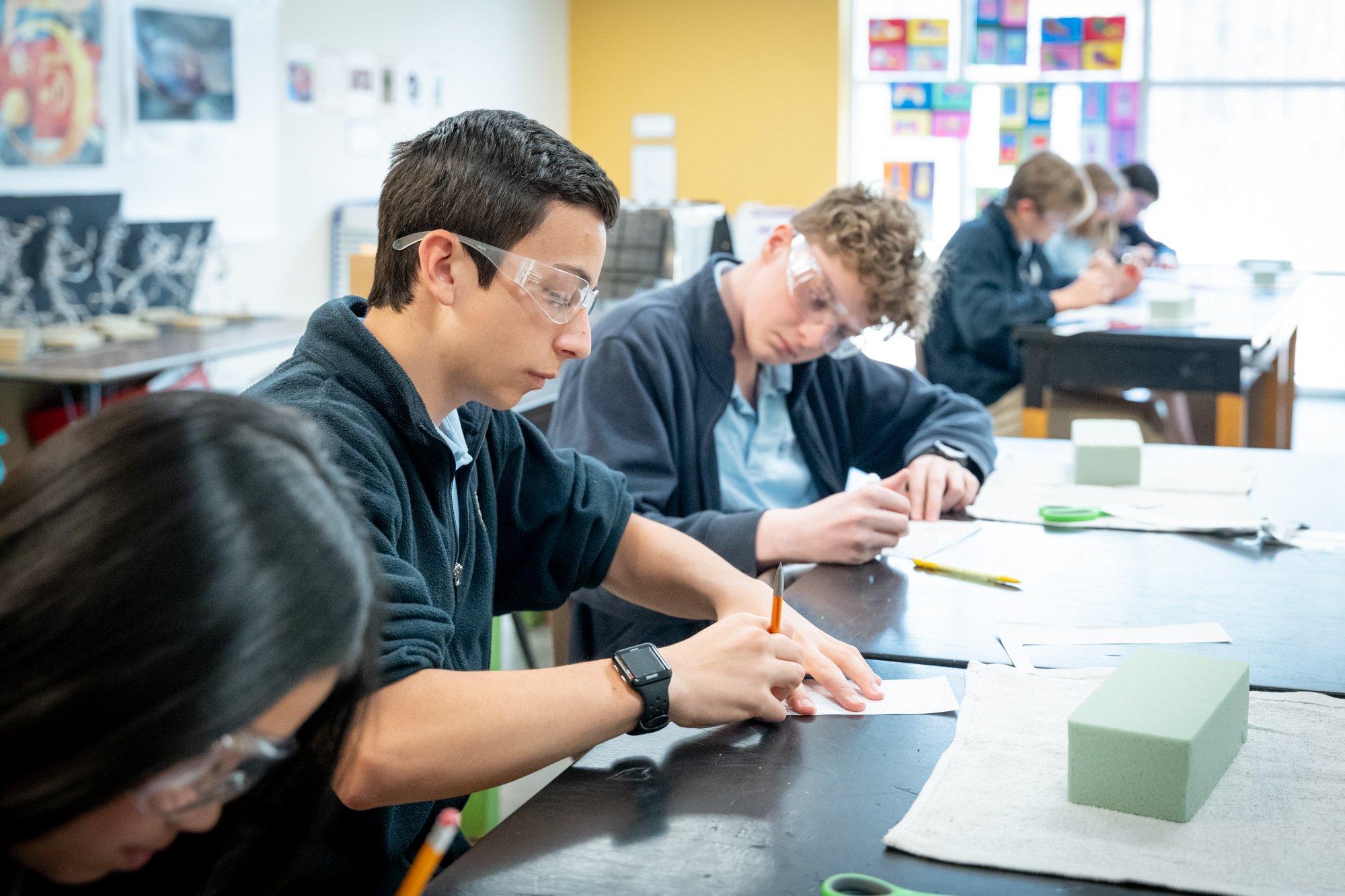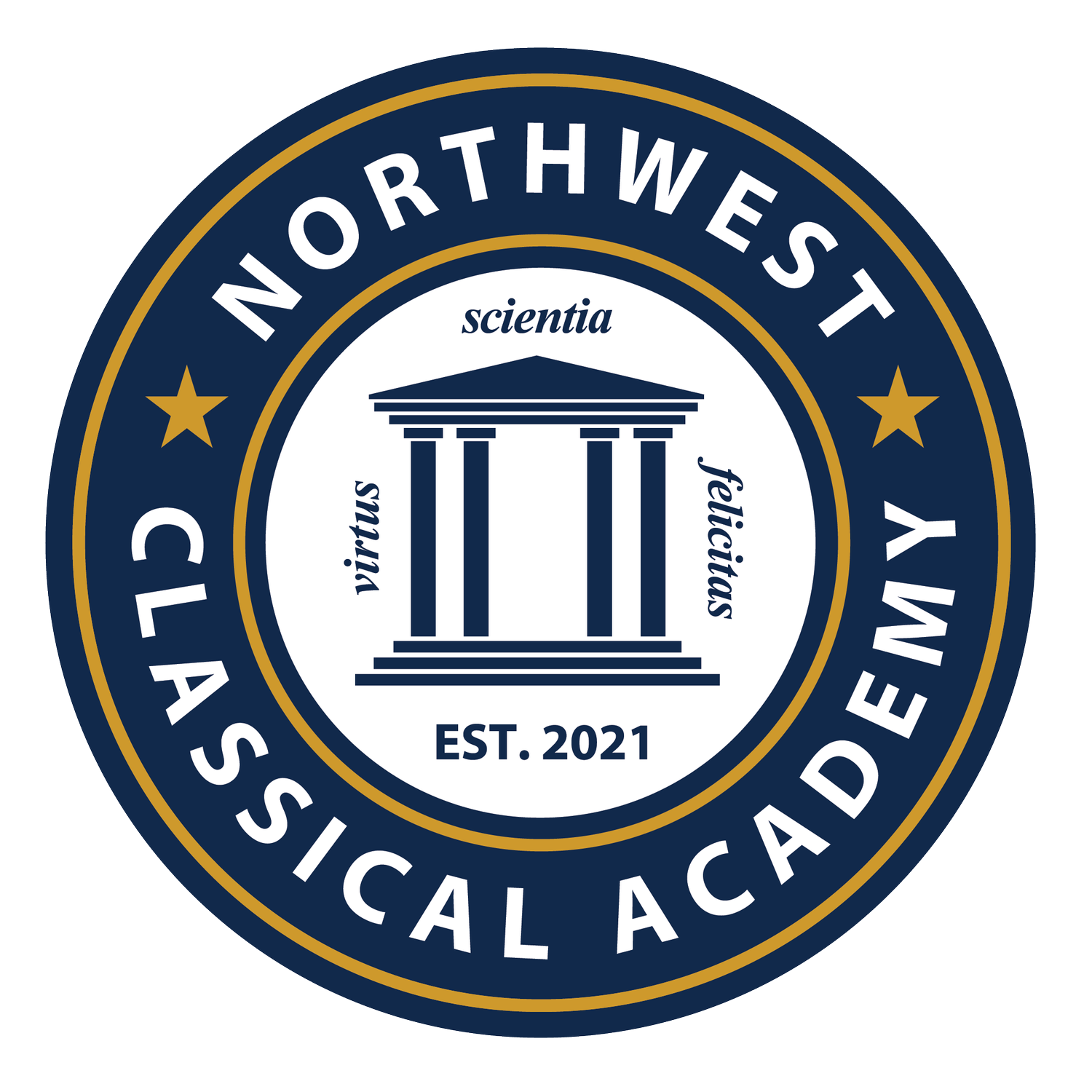
Classical Education in the Upper School
“If we make money the object of human-training, we shall develop money-makers but not necessarily humans; if we make technical skill the object of education, we may possess artisans but not, in nature, humans. Humans we shall have only as we make people the object of the work of the schools—intelligence, broad sympathy, knowledge of the world that was and is, and of the relation of humans to it—this is the curriculum of that Higher Education which must underlie true life.”
W.E.B. Du Bois
English
By the end of their education at Northwest Classical Academy, students will be able to encounter the world of a work of literature that an author has created on its own terms, entering into a meaningful conversation with the ideas expressed in that text in a way that will inform how they meet the inherent responsibilities they have to their own communities. Good reading leads one to acquire the mind of an author, good writing responds to the ideas of an author through expressing accurate analysis, and good questions situate us in human history and are essential in developing imaginative sympathies for mankind. Reading, writing, and discussing are the necessary components for pursuing truth and will engender in students the virtues of being good citizens and friends.
History
Through the study of history at Northwest Classical Academy, students will gain a knowledge of the major events, historical actors, ideas, and traditions that have shaped Western Civilization; the ultimate goal being a recognition of themselves as inheritors of this tradition and, as a result, uniquely burdened with the task of its preservation.
Foreign Language
Arguably the faculty of language most clearly distinguishes human beings from animals. Although we use language all day and every day, rarely do we reflect on the sheer wonder of our ability to articulate sounds that communicate ideas to those around us. The study of how another speech community’s use of language differs from one’s own enhances not only one’s understanding of the target language but also of one’s own language, and mastery of oral and written communication which is critical to one’s intellectual development.
The role of English as the lingua franca of the contemporary world puts native English speakers in an awkward position in terms of language study: everyone else in the world can study English to great benefit, but what language should English speakers study? Apart from the truism that the study of any foreign language contains inherent intellectual benefits and value, NCA believes that Latin studies are directly applicable to the modern English speaker. The significance of Latin comes from the fact that, although English has been enriched by borrowings from a multiplicity of languages, Latin has been uniquely influential on the development of English as we know it today.
Mathematics
Like all true liberal arts, an education in mathematics aims for the cultivation of intellectual and moral virtue. This aim does not negate or ignore the very practical applications of math, but it does reach for a higher and more humane goal. As we learn about the rules, patterns, and theorems of math classes, our hearts and minds become attuned to the rules and patterns in our world. We begin to recognize that we live not in chaos, but in a cosmos (an ordered universe) filled with patterns. Ordered thoughts and ordered affections lead to happiness. As humans, we also love patterns because they are beautiful to behold. They contain an element of mystery and cause us to wonder ‘why is this pattern here?’ and ‘what other patterns may be hiding just beneath the surface?’ Such questions require a curious mind and a patient diligence to ask and to answer. Therefore, we find that Order, Beauty, and Wonder are the principal ends of a mathematics education.
Science
“To conceive, understand and grasp the whole symmetry of the scientific edifice...is equivalent to tasting that enjoyment only conveyed by the highest forms of beauty and truth.”
This quote from Dmitri Mendeleev, who was the initial architect of the periodic table, conveys the essence of what we aim to accomplish in our science classrooms at NCA. Our ultimate goal is to build students’ knowledge about how and why the natural world works, so that they may come to appreciate and love the inherent beauty and truth of our universe. Students learn through a combination of traditional lecture about and hands-on exploration of enduring scientific laws, principles, and phenomena. Historical reflection about important scientists allows students to make connections between the successes and failures of humans and their determined pursuit of natural truths. Through their studies, our students also grow to appreciate the uniqueness and fragility of our planet, which cultivates a sense of global stewardship. Science can orient us in the world, and help explain how we fit into its grand story. We endeavor to graduate discerning citizen scientists who understand and appreciate the truth and beauty of the natural world.


